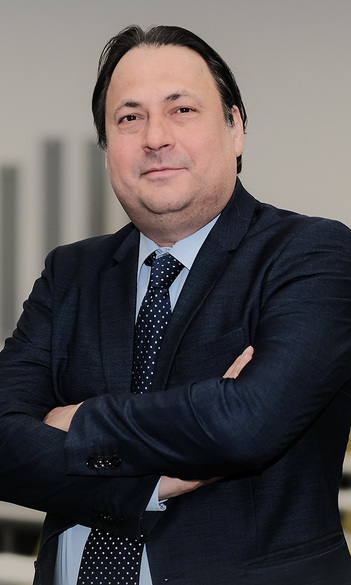From Theory to Practice

– Which are the best places for an internship?
The best places are those that mostly fit the profile of your programme. Predominantly, these are multinational companies. It is these companies that expect the kind of knowledge, skills and competences that ELTE GTK’s students have acquired during their studies. In smaller companies, the students’ knowledge and skills are not utilised as extensively as in a multinational company. If we take accounting as an example, on our undergraduate programmes, students study the ACCA accounting methodology, which is not relevant to small companies but is very much employed on a multinational level.
– Which are the most important skills students should learn during their internship?
First of all, adaptation skills because a company is a completely different environment than an educational institution. This applies to both appearance and behaviour, as we must adapt to a different environment and expectations. Then, it is important to focus on the professional skills and competences acquired during your studies. It must be remembered that the university subjects manifest themselves differently in the workplace than during your studies, and the earlier acquired theoretical skills and competences need to be converted into practical ones.
– Can students complete their internship in the Erasmus scheme?
Yes, this is possible although it is not widespread yet. This opportunity is used by about 5-7% of all students, and it is most popular among those on the International Business Economics (IBE) programme. We expect to see a rise in these numbers as our network of international internships grows. ELTE GTK is pleased to see students do their internship in an international environment abroad because such an experience contributes to the students’ competitiveness. As far as the administrative part of the process is concerned, it is much the same as for local internships.

– Speaking of the network of internship providers, ELTE GTK has several partners in the business world. Can students make additions to this network?
It happens quite regularly that a student’s employer approaches ELTE GTK via the student, and an active relationship is established between the company and the Faculty after signing a cooperation agreement. However, it is interesting to note that students mostly find an internship for themselves and by themselves rather than contacting the internship providers recommended by the Faculty. The number of students who have contacted us because they have been unable to find an internship company for themselves is insignificant. I can only remember two such cases out of a total of 1,000 students so far but, we actually managed to find a good company for these students, as well.
– What are the companies like where ELTE GTK students do their internship?
Multinational companies make up 35-40% of all the internship places. For example, the Big4 companies employ a considerable number of GTK students. Similarly, many of our students do their internship at Morgan Stanley, who are well-known for attracting the best talents. Sometimes 5-10 students work at the same company at the same time. SMEs also employ a significant number of our students.
– What are the most frequently asked questions regarding the administrative side of the internship process?
About 90% of all questions posed by our students concerns which of the four internship types applies to a given student and what the required documentation for that internship type is. The remaining 10% of questions enquires about the acceptability of an internship a student has found. A tricky question once was: “Can I do my internship at a one-person company of which I am both the owner and the managing director?” This is a very challenging question because, according to the regulations, one can do his/her internship under any employment status but in this case, who can confirm the genuineness of the internship? The student is not allowed to sign for himself… However, we were able to find a solution to this puzzling case as well: the student was asked to demonstrate the relationship between his company and its partners and based on that, we were able to judge if the student completed a genuine internship.

– What advice would you give to the next generation both regarding the choice of their internship provider and the administrative tasks related to their internship?
First of all, as many students start working before their 7th semester, they should keep all the documentation related to all their jobs – they may be used for their internship in the future. Secondly, students are advised to attend the online info sessions because the internship and the transfer procedures are discussed in great detail there. By default, these sessions are held at the beginning of every semester. Finally, the administration of an internship should take such a form which allows me, the internship coordinator to see if the work carried out by the student actually fits the requirements of his/her programme. For example, working as a receptionist in a restaurant will not be acceptable. However, work in a customer service manager’s position is more easily acceptable. Therefore, the way students present their work is very important. And, to sum it all up, we are always pleased when students do their internship in a highly professional environment where they can use both their language skills and the wide range of knowledge and competences, they have acquired at ELTE GTK.
Photo: Anilla Lazar

